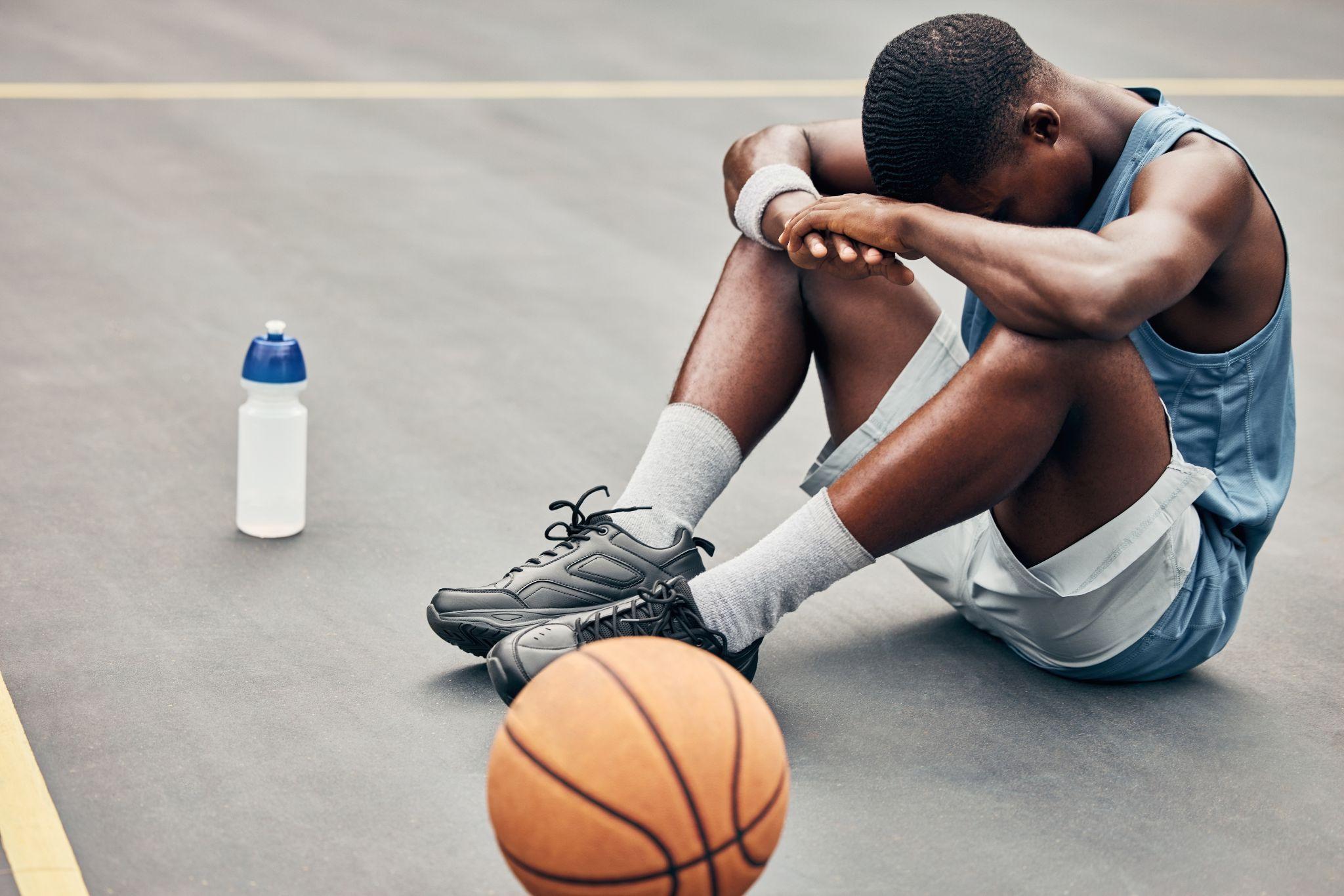Adderall is one of the most commonly abused prescription drugs among teenagers and young adults. It is growing in popularity among athletes too, with many NFL and other major league professional sports players blaming their drug test suspensions on Adderall.1
What Is Adderall?

Adderall is a central nervous system (CNS) stimulant drug typically prescribed for the treatment of ADHD and narcolepsy. Attention-deficit/hyperactivity disorder (ADHD) is a mental condition that makes concentrating difficult and causes people to act on impulse.
Adderall is a combination of two CNS stimulants, amphetamine and dextroamphetamine, and works by increasing the concentration of two neurotransmitters and speeding up your brain activity as a result.
The general effects of Adderall are:
- Increased energy
- Improved focus
- Reduced appetite
- Improved reaction time
Why Do Athletes Use Adderall?
Athletes use Adderall as a performance-enhancing drug.2 Its effects on their appetite and energy levels can give them an edge in training and over their competitors.
Young people like college students, especially those participating in high-pressure sporting competitions, are at the highest risk of abusing this drug.
Not only can using Adderall help them improve their athletic performance, but it often provides them with enough energy and focus on continuing their studies under rigorous training programs, which could be essential, especially if they are in college on a scholarship.
Since ADHD is a common condition, Adderall is relatively easy to come by, especially in college, where many different drugs may change hands at parties or in locker rooms. The perceived benefits of the drug and the fact that it’s so easy to buy are what make Adderall so popular among students.
Which Sports Produce the Most Athletes Using Adderall?
Women’s and men’s sports differ in their percentage of athletes on Adderall, with women in all disciplines equally at risk of using the drug.
Male athletes participating in contact sports like football and wrestling, and surprisingly lacrosse, are most prone to abusing Adderall.3
How Combining Adderall and Sports for Performance Enhancement Leads to Addiction

The long-term or excessive use of Adderall can result in tolerance, physical dependence, or addiction.
If an athlete becomes tolerant to the drug, they will require higher doses to get the same effect as before. Physical dependence on Adderall makes it challenging for athletes to function without regularly using Adderall, whether for sport or simply to avoid withdrawal symptoms.
Due to the powerful stimulating effects produced by Adderall, anyone who has become dependent on the drug will have trouble quitting or reducing their use.
Eventually, dependence will lead to full-blown addiction that may need professional help to address and treat. Addiction develops once their dependence and long-term drug use affect their behavior and brain structure.
Addiction is often classified as a disease caused by substance abuse.
Signs of Adderall Addiction
One of the most common indicators of Adderall addiction and abuse is obtained through drug testing.
Other signs you or a loved one may be addicted to Adderall include:4
- Intense cravings
- Choosing to use Adderall over other activities or experiences that used to be a priority
- Lying about drug use
- Refusing to take a drug test
- Social isolation
- Not being able to stop using when you want to
- Being unusually talkative
Some athletes addicted to the drug may go so far as to fake ADHD symptoms to get a prescription for Adderall. With a seemingly legitimate prescription, it’s much easier to get around any anti-doping rules.
Adderall Side Effects
Using Adderall could result in several unexpected side effects, including:
- Cardiovascular problems like high blood pressure, heart palpitations, and possibly a heart attack or stroke
- Loss of appetite
- Aggression
- Anxiety
- Weight loss
- Memory problems
- Headaches
- Sweating
- Insomnia
For athletes combining Adderall and sports, these side effects can counter the supposed benefits, making it even harder to perform at their best.
When To Seek Help
If you find it difficult to function without taking Adderall or experience any withdrawal symptoms between doses, you may need addiction treatment. For students, this might mean struggling with academic performance, social relationships, or maintaining extracurricular activities. It can be especially challenging for college students who face the dual pressures of academic success and maintaining athletic performance.
For loved ones of students, noticing changes in behavior, such as intense cravings, social isolation, or unusual talkativeness, can be signs that intervention is needed. Students might also lie about their drug use or refuse to take a drug test, which are clear indicators that professional help is necessary. Recognizing these signs early can make a significant difference in the recovery process.
Adderall Withdrawal Symptoms
Withdrawal refers to the physical and mental symptoms that occur when someone reduces or stops using a drug they are dependent on.
Adderall withdrawal symptoms include:
- Depression
- Irritability
- Drowsiness or fatigue
- Problems concentrating
- Anxiety
- Nightmares
- Increased appetite and weight gain
- Insomnia
Withdrawing from Adderall can be a challenging process that affects both the body and mind. The intensity of these symptoms can vary depending on the extent of drug use and individual health conditions. Seeking medical supervision during withdrawal is essential to manage these symptoms safely and effectively.
Managing Withdrawal and Ending Addiction Safely
Overdosing on Adderall or attempting an unsupervised detox could be fatal. For this reason, many doctors recommend an inpatient medical detox program.
Not only can staff at a medical detox center help ease your withdrawal symptoms through therapy and medication but going through treatment in a calm, controlled environment could dramatically increase your chances of successful recovery.
Rehab centers focused on helping athletes overcome addiction will have the most experience in dealing with the unique situations that led to your Adderall abuse in the first place and help you on your long-term road to recovery. At our luxury rehab center, we know how to disentangle Adderall and sports so that athletes can make a healthy return to doing what they love.
Get Help Today at Adelante Recovery Centers

At Adelante Recovery Centers, we are dedicated to helping athletes overcome addiction and achieve lasting recovery. Our mission is to provide compassionate, evidence-based care tailored to each person’s unique needs.
At Adelante Recovery Centers, you can expect:
- Comfortable inpatient facilities: Our inpatient facilities are designed to provide a serene and supportive environment, allowing you to focus entirely on your recovery.
- Safe medical detox: Medically supervised detoxification ensures a safe and comfortable withdrawal process, reducing the risk of complications.
- Comprehensive addiction therapies: Our treatment programs include a variety of therapies such as cognitive behavioral therapy (CBT), dialectical behavior therapy (DBT), and family therapy to address the issues underlying the addiction and promote holistic healing.
- Dual-diagnosis care: We provide specialized care for individuals with co-occurring mental health disorders, ensuring that both addiction and mental health issues are treated for better outcomes.
- Sober living and aftercare assistance: We offer support for transitioning back into everyday life with sober living options and ongoing aftercare services to help you maintain your recovery long-term.
Taking the first step towards recovery can be daunting, but it’s crucial for your health and well-being. Contacting a professional recovery center can provide you with the necessary support and resources. Whether you are an athlete or not, reaching out to our team at (949) 427-9099 will connect you with experts who understand the unique challenges you face.
Don’t let addiction control your life any longer. Embrace the opportunity for a healthier, happier future.
Sources:

